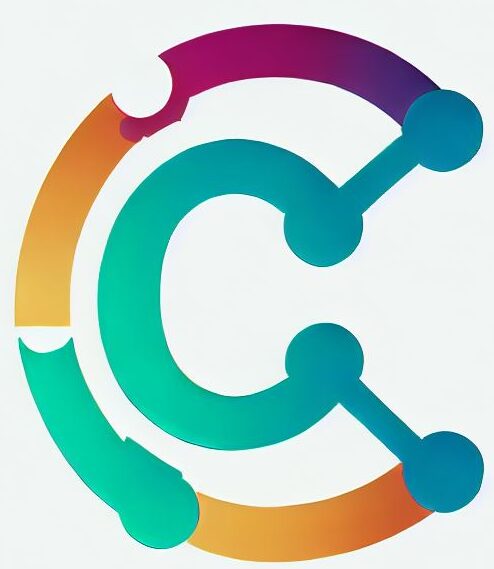Best Coding Bootcamps for Beginners
In today’s technology-driven world, coding skills have become increasingly valuable and sought after. Whether you’re looking to switch careers, enhance your problem-solving abilities, or unleash your creativity, coding bootcamps offer a fast-track route to acquire the necessary skills. In this blog post, we will delve into the world of coding bootcamps and explore some of the best options available for beginners. By the end, you’ll have a comprehensive understanding of the benefits and features that make these bootcamps stand out.
Best Coding Bootcamps for Beginners
- General Assembly: General Assembly is one of the most reputable and well-known coding bootcamps globally, offering both in-person and online programs. Their beginner-friendly courses focus on popular programming languages such as JavaScript, Python, and Ruby. With a comprehensive curriculum and experienced instructors, General Assembly equips students with the fundamental skills needed to kick-start their coding journey. Additionally, they provide career support and networking opportunities to help graduates find employment in the tech industry.
- Flatiron School: Flatiron School is renowned for its immersive coding bootcamps that cater to beginners. Their courses cover full-stack web development, data science, and UX/UI design. Flatiron School prides itself on its project-based learning approach, where students work on real-world projects to build a robust portfolio. The bootcamp also offers personalized career coaching and job placement assistance, ensuring graduates are prepared for a successful transition into the tech industry.
- Le Wagon: Le Wagon is a coding bootcamp that operates in multiple cities worldwide and also offers remote courses. With a focus on collaboration and hands-on learning, Le Wagon’s programs emphasize coding fundamentals, web development, and entrepreneurship. Their curriculum is designed to foster a strong coding foundation while encouraging students to think creatively and develop their problem-solving skills. Le Wagon’s strong alumni network and job placement support contribute to its reputation as a top bootcamp for beginners.
- App Academy: App Academy is a highly regarded coding bootcamp known for its rigorous curriculum and strong track record of job placement. Their intensive programs cover full-stack web development and software engineering. App Academy’s unique feature is its deferred tuition model, where students only pay after they secure employment. This model aligns the bootcamp’s success with the students’ success, making it an attractive option for aspiring coders.
- Thinkful: Thinkful offers flexible online coding bootcamps that are ideal for beginners looking for a more self-paced learning experience. Their programs cover a wide range of topics, including web development, data science, and digital marketing. Thinkful’s mentorship model pairs each student with an industry professional who provides personalized guidance and support. This one-on-one mentorship greatly enhances the learning process and helps students build a strong foundation in coding.
Frequently Asked Questions (FAQs)
1. What are coding bootcamps?
Coding bootcamps are intensive, short-term training programs designed to teach coding and programming skills. They typically offer immersive learning experiences, often lasting between 8 to 16 weeks, where students gain hands-on experience through projects and assignments. Coding bootcamps are popular among beginners who want to quickly acquire the skills needed to start a career in programming.
2. What are the best coding bootcamps for beginners?
There are several highly regarded coding bootcamps that cater to beginners. Some of the best bootcamps for beginners include:
- General Assembly
- Flatiron School
- App Academy
- Hack Reactor
- Le Wagon
- Springboard
- Thinkful
- Coding Dojo
- CareerFoundry
- BrainStation
3. How do I choose the best coding bootcamp for beginners?
When choosing a coding bootcamp for beginners, consider the following factors:
- Curriculum: Look for bootcamps that offer comprehensive beginner-friendly curricula, covering the programming languages and technologies you want to learn.
- Teaching Methodology: Assess the bootcamp’s teaching approach, such as lectures, hands-on projects, and mentorship, to ensure it aligns with your learning style.
- Instructor Quality: Research the instructors’ qualifications and experience to ensure they have the expertise to guide beginners effectively.
- Reviews and Alumni Success: Read reviews and check the success stories of bootcamp alumni to gauge the program’s effectiveness and whether it has helped previous beginners achieve their career goals.
- Job Placement Support: Evaluate the bootcamp’s career services, including job placement support, networking opportunities, and alumni support, as this can greatly enhance your chances of finding employment after graduation.
- Cost and Financing: Consider the bootcamp’s tuition cost and any available financing options or scholarships. Remember to factor in additional costs like living expenses, equipment, and commuting if attending an in-person bootcamp.
- Bootcamp Format: Decide whether you prefer an in-person bootcamp, an online bootcamp, or a hybrid model that combines both.
- Accreditation and Reputation: Check if the bootcamp is accredited or has partnerships with reputable organizations, as this can add credibility to your learning experience.
4. How long do coding bootcamps for beginners typically last?
Coding bootcamps for beginners typically last between 8 to 16 weeks. However, the duration can vary depending on the bootcamp and the specific program you choose. Some bootcamps may offer part-time or self-paced options, which can have longer durations to accommodate learners who want to balance their studies with other commitments.
5. Can I attend a coding bootcamp if I have no prior coding experience?
Yes, coding bootcamps are designed for individuals with little to no prior coding experience. Many bootcamps specifically cater to beginners and provide introductory courses to help build a strong foundation. These programs often assume no prior knowledge and guide you through the basics of coding step-by-step. However, it’s important to research and choose a bootcamp that offers suitable beginner-level courses to ensure you receive the necessary support and instruction.
6. What programming languages are typically taught in coding bootcamps for beginners?
he programming languages taught in coding bootcamps for beginners can vary. However, some commonly covered languages include:
- JavaScript: Widely used for web development and often taught due to its versatility and importance in modern web applications.
- Python: Known for its simplicity and readability, Python is popular for various applications, including web development, data analysis, and automation.
- HTML/CSS: These languages are fundamental for building web pages and are usually covered in the initial stages of a bootcamp.
- Ruby: Frequently taught in bootcamps, Ruby is beginner-friendly and used with the Ruby on Rails framework for web development.
- Java: A versatile language used in enterprise-level applications, Android app development, and more.
These are just a few examples, and the specific programming languages covered can vary depending on the bootcamp’s curriculum and target industry.
7. How much do coding bootcamps for beginners typically cost?
The cost of coding bootcamps for beginners can vary widely depending on factors such as location, bootcamp reputation, program duration, and format. On average, bootcamp tuitions range from $5,000 to $20,000. In-person bootcamps are generally more expensive due to facility and infrastructure costs, while online bootcamps tend to be more affordable. Some bootcamps also offer financing options, scholarships, or income share agreements (ISAs) to help make the programs more accessible to students.
8. Can I get a job after completing a coding bootcamp as a beginner?
While completing a coding bootcamp can provide you with valuable programming skills, it does not guarantee a job. However, many bootcamps offer job placement assistance, including career counseling, resume building, interview preparation, and networking opportunities. Success in finding employment after a bootcamp largely depends on your dedication, the job market, your location, and your ability to showcase your skills effectively to potential employers.
READ ALSO: Online Math Courses for High School Students








